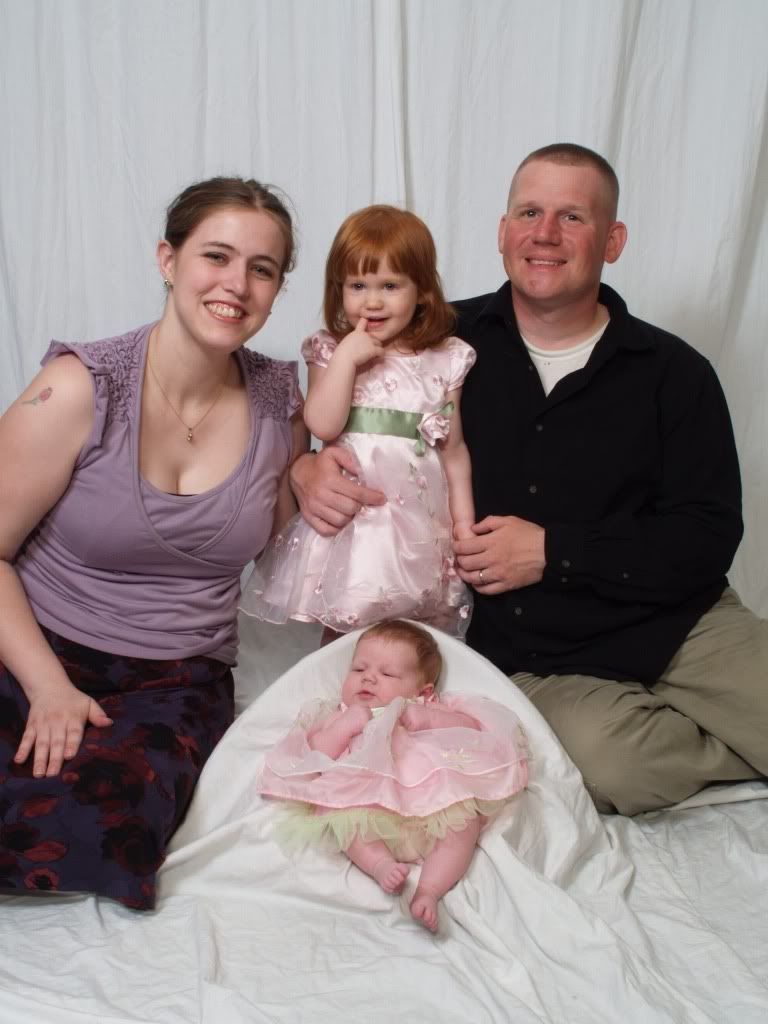Yesterday, a dear friend of mine turned me on to a news story that was featured by Fox 5 out of Atlanta. Unfortunately, I haven't been able to get the video to play (my browser is being a little cantankerous) but the story I was able to read grabbed my attention.
The story Fox did covering Sarah Schwartz's fight with PPD is a familiar one. Breastfeeding. Anxiety. Not recognizing what was going on.
There was one thing that stood out in particular, though:
People often say things like "How can you not know you have PPD?", "You must know what's going on with yourself", and all sorts of other phrases along the same line of thinking. The answer? I don't know.
What I do know is that for many of us, we don't recognize what's going on with us. You have to understand, PPD is literally messing with your brain. Me? My thought processes were different. My whole outlook on life was abnormal. I didn't recognize what was going on. It took me finding myself standing at the top of the stairs in the middle of the night thinking "I could just throw myself down the stairs", and then walking away only to think "I could take some pills and just go to sleep and not be hurting anymore and everyone would be rid of me, everyone would be better off without me anyways" before I realized "WHOA! Something is WAY off here, I need to talk to someone...".
I was good at hiding it; partly so others wouldn't think I was a horrible mother and partly, I suspect, so I wouldn't have to face the pain quite as much. Head buried in the sand, you know? I don't think most of my friends or family knew what I was going through. And most of them weren't that well informed and educated about PPMD anyways. Heaven knows I wasn't.
This difficulty that many women face in recognizing our own illness, recognizing that we need help, is why it's so important for everyone to be educated and informed about the realities of Postpartum Mood and Anxiety Disorders. It doesn't matter how well educated a woman is about the symptoms and risks of PPMD, if she's "In the fog", she may not be able to recognize her own symptoms. There are quite a few things from my PPMD months that I don't really remember. Small wonder I couldn't recognize the symptoms. If the woman in your life is suffering, she may need your help to even be able to ask for help from trained medical professionals.
Thankfully, Sarah and I (along with many other women) found help through Postpartum Progress. Postpartum Progress is a WONDERFUL resource on PPMD, for everyone, regardless of whether you are a parent, parent-to-be, or someone who is a friend or family member of a new or soon-to-be-new parent. Please, educate yourself about the realities of PPMD. Know the symptoms. Know the difference between the Baby Blues, Postpartum Depression, and Postpartum Psychosis. Know about Postpartum OCD and Postpartum Anxiety. Know about Prenatal Depression. Know it all. Knowledge saves lives. Postpartum Progress has some very handy lists of symptoms in "Plain Mama English". Read the blogs of women who have survived PPMD (a list of blogs I follow is conveniently located in a tab at the top of this page). Check out resources like Postparum Support International, who has a list of support groups by geographical location and specialized support coordinators for dads, military families, Spanish speaking families, and Arabic speaking families. Online support can be found through PSI, #PPDChat on Twitter, and many other venues (including blogs and Facebook groups and pages).
Learn. Know. Educate yourself. Educate others. One of the biggest obstacles to me getting help once I realized what was going on was shame and stigma, fear of what others would think of me because of so many false ideas. In my opinion, the best ways to fight those nasty monsters are through education and public discussion.
One last note: I'd like to give a HUGE thank you to Fox 5 for doing such a wonderful story. Far too often when I hear about PPMD in the news it's in a negative manner that may have bad/false information and just spreads the stigma. This story gets it right. I'm dancing on my chair in gratefulness. Thank you, Fox. And thank you Sarah, for being willing to speak up and speak out. Warrior Moms unite!

The story Fox did covering Sarah Schwartz's fight with PPD is a familiar one. Breastfeeding. Anxiety. Not recognizing what was going on.
There was one thing that stood out in particular, though:
"Sarah says the irony in her story -- and the reason she wants to share it -- is that she works in mental health. She's been a social worker for 20 years and is the director of a nonprofit called Mental Health America of Georgia.
"And yet I was so sick that despite my knowledge, I still didn't recognize myself as being sick," Schwartz said. "I thought, 'Could this be postpartum depression, could this be postpartum anxiety?' And I thought, ‘No, I'm just a monster. I am just a horrible person.' I understood for the first time in my life, why people commit suicide.""
What I do know is that for many of us, we don't recognize what's going on with us. You have to understand, PPD is literally messing with your brain. Me? My thought processes were different. My whole outlook on life was abnormal. I didn't recognize what was going on. It took me finding myself standing at the top of the stairs in the middle of the night thinking "I could just throw myself down the stairs", and then walking away only to think "I could take some pills and just go to sleep and not be hurting anymore and everyone would be rid of me, everyone would be better off without me anyways" before I realized "WHOA! Something is WAY off here, I need to talk to someone...".
I was good at hiding it; partly so others wouldn't think I was a horrible mother and partly, I suspect, so I wouldn't have to face the pain quite as much. Head buried in the sand, you know? I don't think most of my friends or family knew what I was going through. And most of them weren't that well informed and educated about PPMD anyways. Heaven knows I wasn't.
This difficulty that many women face in recognizing our own illness, recognizing that we need help, is why it's so important for everyone to be educated and informed about the realities of Postpartum Mood and Anxiety Disorders. It doesn't matter how well educated a woman is about the symptoms and risks of PPMD, if she's "In the fog", she may not be able to recognize her own symptoms. There are quite a few things from my PPMD months that I don't really remember. Small wonder I couldn't recognize the symptoms. If the woman in your life is suffering, she may need your help to even be able to ask for help from trained medical professionals.
Thankfully, Sarah and I (along with many other women) found help through Postpartum Progress. Postpartum Progress is a WONDERFUL resource on PPMD, for everyone, regardless of whether you are a parent, parent-to-be, or someone who is a friend or family member of a new or soon-to-be-new parent. Please, educate yourself about the realities of PPMD. Know the symptoms. Know the difference between the Baby Blues, Postpartum Depression, and Postpartum Psychosis. Know about Postpartum OCD and Postpartum Anxiety. Know about Prenatal Depression. Know it all. Knowledge saves lives. Postpartum Progress has some very handy lists of symptoms in "Plain Mama English". Read the blogs of women who have survived PPMD (a list of blogs I follow is conveniently located in a tab at the top of this page). Check out resources like Postparum Support International, who has a list of support groups by geographical location and specialized support coordinators for dads, military families, Spanish speaking families, and Arabic speaking families. Online support can be found through PSI, #PPDChat on Twitter, and many other venues (including blogs and Facebook groups and pages).
Learn. Know. Educate yourself. Educate others. One of the biggest obstacles to me getting help once I realized what was going on was shame and stigma, fear of what others would think of me because of so many false ideas. In my opinion, the best ways to fight those nasty monsters are through education and public discussion.
One last note: I'd like to give a HUGE thank you to Fox 5 for doing such a wonderful story. Far too often when I hear about PPMD in the news it's in a negative manner that may have bad/false information and just spreads the stigma. This story gets it right. I'm dancing on my chair in gratefulness. Thank you, Fox. And thank you Sarah, for being willing to speak up and speak out. Warrior Moms unite!




